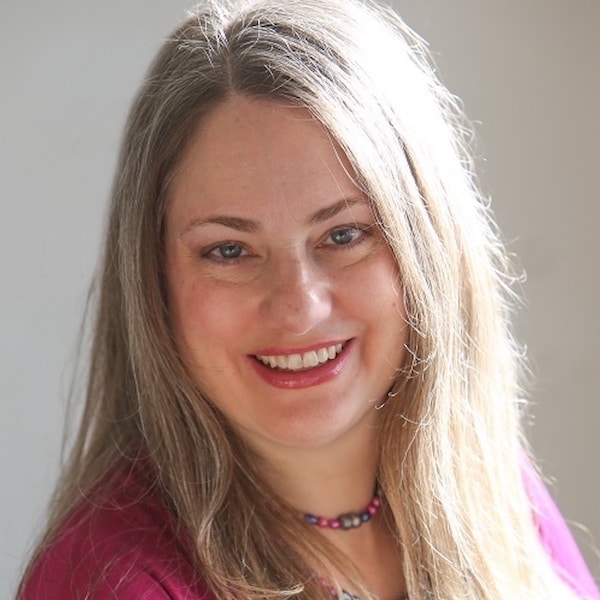Be Afraid—Be Very Afraid!
In astrology’s infancy, about four to five thousand years ago, eclipses were a terrifying phenomenon. The experience of day suddenly becoming night, of the moon covering and temporarily hiding the sun and the sun inexplicably disappearing brought terror to human beings. Early astrologers sought to understand and ultimately predict this phenomenon. They did become able to predict it, and ultimately became able to manipulate kings and peoples with this knowledge. Their ability to predict an upcoming eclipse and to predict also the rise and fall of crops and nations gave them unprecedented power, power which was rooted in their understanding of the natural world, but which ultimately became political. If there is a reason why astrology is hated and feared today, eclipses may well be wrapped up in it.
Interpretations of ancient astrologers were highly fatalistic, focusing on physical events to come and predicting human behavior, even death, with surprisingly consistent accuracy. But that’s not how astrology is used today. Modern western-world astrology is much less fatalistic and much more psychological. Today it is about human motivation and a person’s inner experience. We have all but lost some of the most ancient predictive techniques because of their extreme fatalism. Modern people do not want to know the date of their death, even if an astrologer today could predict it, which is not likely. It’s possible that a Vedic (Indian) or a Chinese astrologer could, but not a Western one.
The interpretation and use of eclipses has changed with the times. Although astrologers who focus on politics do continue to use them to predict the fates of rulers and nations, eclipses are more commonly used to interpret personal, individual experiences in psychological ways. And eclipses today generate more fascination and less fear.
What Is An Eclipse?
The Sun and Moon are by far the brightest objects in our sky; thus they are called the luminaries or “lights.” An eclipse is an occasion when the Sun, Moon and Earth line up so precisely that one of the luminaries becomes shadowed, and therefore goes dark.
A solar eclipse is only possible during a new moon. During a new moon, the Moon and Sun are on the same side of the Earth, so close to each other that the Moon fades from sight. This is a familiar phenomenon—it happens every month, and gradually. A solar eclipse is a special type of new Moon, one where the Moon and Sun are not only in the same general area of the sky, but also in exactly the same plane. From our view on Earth, the Moon covers the Sun and hides it from us, darkening the sky. Compared to the new Moon, this is a sudden and rare phenomenon.
It is not, however, as rare as you think. A set of eclipses, usually including a solar and a lunar, happens every six months. Not every eclipse is visible in every area of the world. This is one reason why the ancients found eclipses so fearsome—they seemed to occur at such irregular intervals. Astrologers today interpret an eclipse as having more effect in the areas where the eclipse can be seen.
A lunar eclipse is only possible during a full moon. During a Full Moon, the Moon and Sun are on opposite sides of the Earth, and the Moon is at its brightest. A lunar eclipse is a special full moon where the Earth is in the same plane with both luminaries and the Moon is therefore shadowed by the Earth. This too, is a relatively sudden and rare phenomenon and not visible to everyone on Earth.
What Is The Shadow Agent?
Sometimes during an eclipse, another planet will be close by (within 5 degrees of arc), close enough to be drawn into the themes of that eclipse. I call that planet accompanying the eclipse the “Shadow Agent.” It assists the eclipse by pointing out your shadow in its area of life. For example, Mercury points out your shadow by means of communication while Neptune points out your shadow by means of dreams and spirituality.
According to Wikipedia, the shadow side in Jungian psychology is a part of the unconscious mind consisting of repressed weaknesses, shortcomings, and instincts. Jung developed the idea of the shadow to represent that side of a human being which is held back and not consciously expressed. Some aspects of a shadow can be positive as well as negative, as some human beings repress positive traits. Jung said that the shadow, if ignored, is often projected onto other people. He also said that it can be brought up into consciousness and integrated with the rest of one’s personality.
One way to describe an eclipse is “a luminary is occluded such that we see a shadow.” Psychologically, eclipses represent the appearance of the shadow and the occasion of an eclipse contacting something in your natal chart is the perfect opportunity to get a good look at your own shadow. The shadow is, by definition hard for you to see, because it is behind you. An eclipse can bring it out and make it easier to see, thus giving you a chance to stop projecting it, own it, accept it as part of yourself and integrate it with the rest of your personality. This is uncomfortable, but it is also a gift. Much human energy is wrapped up in avoiding, projecting and hiding our shadows. When you integrate your shadow, you reclaim that energy.
The Shadow Agent is a planet (or planets) which is an agent of the eclipse and is therefore asking you to look at your shadow. It will do so according to its planetary nature. Sometimes a person in your life may take the role of the Shadow Agent for you, acting out the agenda of this planet and forcing you to look at things or areas you don’t ordinarily look at.
How Do You Know If An Eclipse Will Affect You?
You’ll feel an eclipse if it falls within 5 degrees of one of your natal planets. A good astrologer can tell you that. An eclipse’s effects are also likely to be stronger if you live in the part of the world where it can be seen directly. And an eclipse will be stronger if it is total, rather than partial. These things taken together and with a few other factors added in, will tell you the generic nature of the eclipse, the area of your life where it’s likely to affect you, and the strength of the effect. A strong eclipse is likely to be felt, at least in a background way, for six months until it is replaced by the next same-type of eclipse (solar or lunar). According to Georgia Stathis, a San Francisco Bay Area expert on eclipses, there is also likely to be a resurgence of the eclipse’s themes during the same-type lunation (New or Full Moon) three lunar cycles after the eclipse and a foreshadowing of the themes of the eclipse will happen during the same-type lunation three lunar cycles before. More on that another time.
Does the Shadow Agent make life uncomfortable? Yes. Will human beings ever enjoy looking at their shadows? Probably not. But the gift of energy returned to us when we embrace our shadow and the gift of conscious self-knowledge and acceptance are great, when we are courageous enough to accept them.
Find out about this year’s eclipses.


